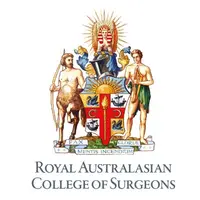Cosmetic Reference & Risks
Get all the information you need
Understand the risks and complications of cosmetic surgery
Cosmetic Reference & Risks
Understand the risks and complications of our cosmetic treatments.
Every surgical procedure inherently carries potential risks and complications, which may vary depending on the specific surgery. Common surgical risks include:
Scarring
Scarring is an inevitable aspect of the body’s healing process following surgical incisions. The appearance and severity of scars are influenced by factors such as an individual’s skin type, genetic predispositions, and the location and extent of the incision. Some individuals may develop hypertrophic or keloid scars. If scarring is a concern, treatment options are available and should be discussed with your surgeon.
Infection
Infection is a potential risk associated with all surgical procedures, including cosmetic surgery. It occurs when pathogenic bacteria invade the surgical site, leading to symptoms such as redness, increased pain, pus formation, and delayed wound healing. Although surgeons adhere to strict sterile techniques to reduce this risk, patients must follow post-operative care instructions closely. Early detection and treatment with antibiotics are essential for effectively managing infections.
Pain
Pain is an expected postoperative outcome, with its intensity and duration varying based on the type of surgery and the patient’s pain tolerance. While mild discomfort is typical, severe or persistent pain may indicate a complication and should be promptly evaluated. Surgeons provide guidance on pain management, including prescribed analgesics and recommendations for rest and recovery.
Bleeding
Bleeding, which may be external or internal, is a possible consequence of surgical procedures. External bleeding is typically visible at the incision site, whereas internal bleeding (hematoma) may present as pain, pressure, or swelling. Prompt medical attention is necessary if unusual swelling or bleeding is observed post-surgery.
Seroma
A seroma is an accumulation of clear lymphatic fluid beneath the skin, often resulting from lymph vessel disruption during surgery. Symptoms include increased pain, pressure, and noticeable swelling or clear fluid drainage from the incision site. Although seromas are generally minor complications, they may require drainage or additional treatment to facilitate healing.
Anaesthetic Complications
Anaesthesia, while crucial for pain management, poses certain risks, including allergic reactions, intubation trauma, malignant hyperthermia, and issues with blood pressure or respiration. Continuous intraoperative monitoring allows for the prompt identification and management of such complications.
Undesirable Cosmetic Outcome
Despite advanced surgical techniques and the expertise of skilled surgeons, there is always a possibility of an unsatisfactory cosmetic outcome following surgery. This may manifest as asymmetry, skin puckering, or results that do not align with patient’s expectations. It is important for patients to maintain realistic expectations and discuss potential outcomes thoroughly during consultations. Revision surgery may be considered to address undesirable outcomes, although success is not guaranteed.
Nerve Damage
Nerve damage, though rare, is a potential complication of cosmetic surgery. It can occur due to tissue manipulation or accidental nerve injury during the procedure. Symptoms may include numbness, tingling, or loss of sensation. In most cases, nerve function gradually returns over weeks or months, but permanent changes can occur in rare instances. Patients should promptly report any unusual sensations following surgery.
Bruising and Swelling
Post-surgical bruising and swelling are common and expected as part of the healing process. Excessive or prolonged bruising and swelling, however, warrant attention. Adherence to post-operative care instructions, such as elevating the affected area, applying cold compresses, and avoiding strenuous activities, is crucial. Patients should seek evaluation if they experience prolonged swelling or severe bruising.
Death
Although extremely rare, the risk of death is inherent in any surgical procedure. This may result from severe complications, adverse reactions to anaesthesia, or underlying health conditions. Surgeons and their teams prioritise patient safety through rigorous pre-operative assessments and the application of advanced surgical techniques and protocols. Patients are encouraged to disclose their complete medical history during consultations and adhere closely to pre- and post-operative guidelines.
Make an Enquiry
If you would like to know more about the treatments on offer, and what Ashbury Clinic in Brisbane and on the Gold Coast can do for you, please contact us today.










Ask a question or select a preferred consultation time.
Looking for cosmetic doctors on the Gold Coast or Brisbane that can perform breast augmentation, liposuction, tummy tuck, varicose vein removal, or tattoo removal? Our cosmetic clinics based in Brisbane and the Gold Coast can help you.
If you would like further information, or to make an appointment, please contact us. Our friendly team are here to help you in any way possible.
All new patients must pay a $50 booking fee to secure their appointment.
This fee will only be refunded if a minimum of 48 hours notice is provided.
The fee can be deducted from any treatment undertaken with nurses and beauty therapists only.
Our Locations
Consultation BY APPOINTMENT ONLY. Please call to arrange a booking.
Get in Touch
Consultation BY APPOINTMENT ONLY. Please call to arrange a booking.
Opening Hours
Disclaimer: Please call to check specific clinic opening hours.
MAIN CLINIC (WINDSOR)
| Monday | 8:30am to 6:30pm | |
| Tuesday | 8:30am to 6:30pm | |
| Wednesday | 8:30am to 6:30pm | |
| Thursday | 8:30am to 6:30pm | |
| Friday | 8:30am to 6:30pm | |
| Saturday | 8:30am to 4:00pm | |
| Sunday | Closed |
For other sites, please call to arrange an appointment.
Disclaimer: This website contains imagery which is only suitable for audiences 18+. All surgery contains risks; understand surgery risks and complications here. Before proceeding, you should seek a second opinion from an appropriately qualified health practitioner.
